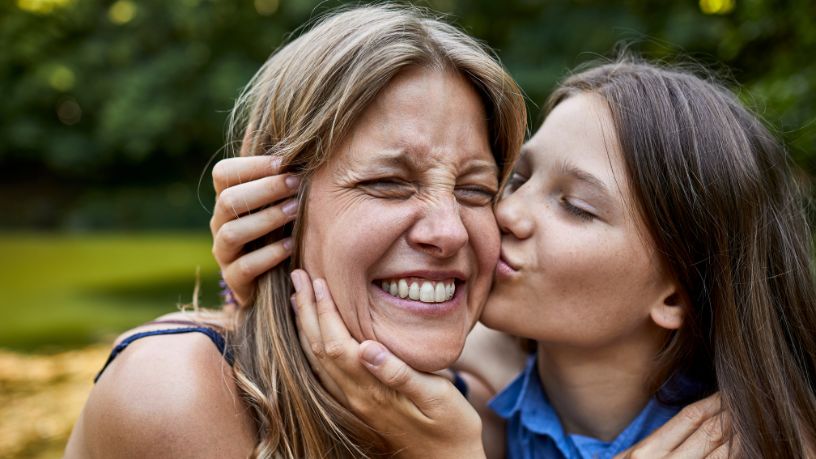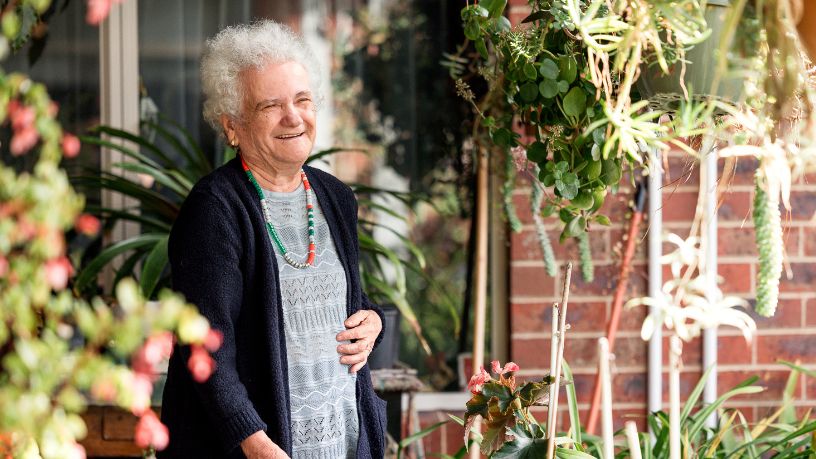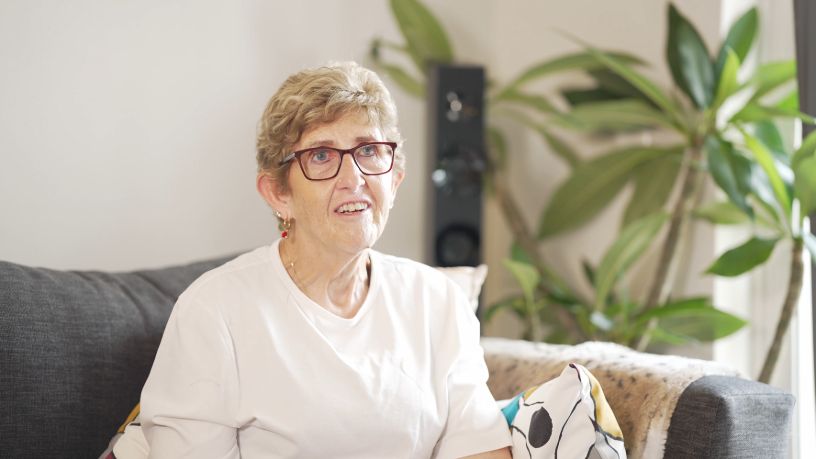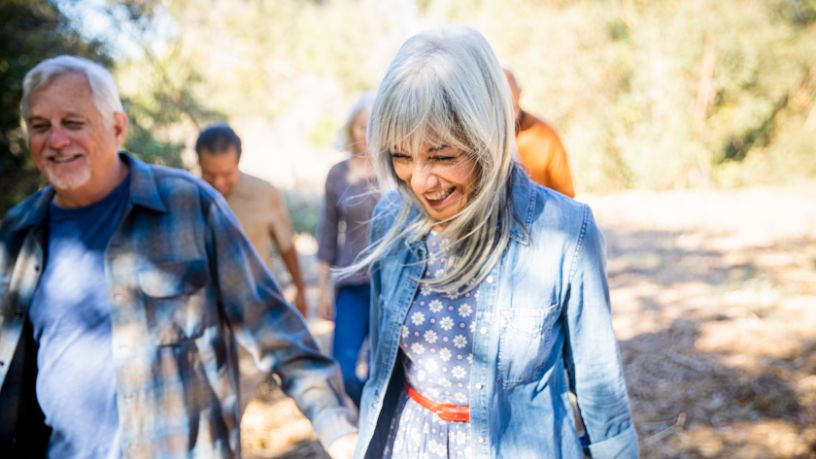Limiting or avoiding certain food and drinks may lower your risk of some cancers.
On this page
Key takeaways
Fibre is a key defence against bowel cancer, Australia's 4th most common cancer.
Discover some key cancer fighting foods to prioritise in your diet.
When it comes to cancer prevention, you're probably across the basics. Don't smoke. Reduce your exposure to the sun. Check in with your doctor if you notice worrying symptoms.
But did you know your nutrition is also linked to cancer?
While there's no one specific food or drink that's going to stop you from getting cancer, there are things you can prioritise and limit in your diet to reduce your risk.
Let's look at a few of them.
What to limit
Red and processed meat
The World Health Organization classes red and processed meats as carcinogenic, which can increase your risk of cancer.1
Red meat, which includes beef, pork and lamb, is considered a Group 2A carcinogen, and may increase your risk of bowel cancer (with some evidence also pointing to pancreatic and prostate cancer).
And, as a Group 1 carcinogen, processed meats (think hot dogs and deli meats) present an even greater risk for bowel cancer.
If you're a meat eater, it's recommended that you eat a maximum of 455g of lean, cooked red meat each week and avoid processed meats altogether in order to reduce your risk of cancer.2
Salt
High salt intake is linked to an increased risk of stomach cancer, and it's recommended that you consume no more than one teaspoon (or around 5g) of sodium each day.3
As well as limiting salt at the table, you should also be checking labels and limiting or avoiding foods that are high in added salt, like packaged or takeaway foods, cured meats and pickled or preserved foods. Look for foods labelled 'no added salt' or 'low salt' at the supermarket.
Sugar
While it's not a carcinogen, a diet that is high in added sugar can contribute to overweight and obesity, which itself may increase your risk bowel, kidney, pancreatic and breast cancer.3
In fact, it's thought that 3.6% of all new cancers around the world are attributable to excess body weight.4
As well as limiting sugar in your cooking, make sure you watch out for foods that contain added sugar (like lollies, biscuits and soft drinks) and keep your daily added sugar intake to no more than 6 teaspoons worth.5
Alcohol
When broken down in your body, alcohol (which is also a known carcinogen) can damage your cells. And alcohol consumption is known to increase your risk of certain cancers, including bowel, breast, throat, oesophagus and liver cancer.6
Australian guidelines recommend that healthy adults consume no more than 10 standard alcoholic drinks per week (including a limit of 4 drinks in any one day).7
Key cancer fighting foods
Limiting your intake of the above is your best nutritional defence against cancer. But there are some foods that you can prioritise in your diet, too.
Essentially, the best 'cancer-fighting' foods are those aimed at preventing bowel cancer, Australia's 4th most common cancer.8
Here, fibre is key.
This comes down to a few things. Foods that are high in fibre bind to carcinogens in the stomach (which you then excrete when you go to the toilet). Dietary fibre also converts into short chain fatty acids, which are known to protect against cancer.
Also, as fibre tends to keep you fuller for longer, getting more of it in your diet may help with things like portion control and weight management.
According to the Australian dietary guidelines, it's recommended that you get in at least 25 to 30g of fibre every day, which can be consumed across each meal.9
This may include a balanced mix of things like:
Legumes
These include lentils and beans, which can be thrown into salads and swapped in for meat (they make a fantastic mince substitute for spaghetti bolognaise!).
Whole grains
A balanced diet should include fibre-rich foods like rolled oats, whole grain bread, whole grain pasta and quinoa.
Fresh fruit and veg
Fruit and vegetables are packed full of fibre and are a core part of any well-balanced diet. They shouldn't be overlooked.
As well as fighting against bowel cancer, fruit and veg contain vitamins, minerals and antioxidants that may further decrease your risk of other cancers, including those affecting your oesophagus, lung, liver, stomach, mouth and throat.10
You should aim to include a range of different-coloured fruit and veg in your daily diet, with 5 serves of vegetables and 2 serves of fruit every day.
This might seem like a lot, but it's very achievable. One helpful trick is to spread out your fruit and veg intake across the day, so you're getting a serving with different meals and snacks.
For dinner, half your plate should contain non-starchy vegetables like leafy greens, carrots, broccoli or cauliflower, one quarter should contain a protein like poultry, fish, meat or lentils, and the remaining quarter should contain whole grain carbohydrate, like potato, rice or pasta.
When it comes to fruit and veg, you should also aim to keep the skin on, as it contains added fibre!

At Bupa, trust is everything
Our health and wellbeing information is regularly reviewed and maintained by a team of healthcare experts, to ensure its relevancy and accuracy. Everyone's health journey is unique and health outcomes vary from person to person.
This content is not a replacement for personalised and specific medical, healthcare, or other professional advice. If you have concerns about your health, see your doctor or other health professional.
1World Health Organization. (2015). Cancer: Carcinogenicity of the consumption of red meat and processed meat. World Health Organization.
2Cancer Council. (2024). Meat and cancer risk. Cancer Council.
3Cancer Council. (2024). Salt and sugar. Cancer Council.
4Cancer Australia. (2024). Overweight and obesity. Australian Government.
5World Health Organisation. (2015, March 4). WHO calls on countries to reduce sugars intake among adults and children [news release].
6Eatforhealth. (2025). Dietary fibre. Australian Government.
7National Health and Medical Research Council. (2024). Australian guidelines to reduce health risks from drinking alcohol. Australian Government.
8Australian Government, Australian Institute of Health and Welfare. (2024). Cancer data in Australia. Australian Government.
9Dietitians Australia. (2022). Fibres for your gut: sorting through the roughage. Dietitians Australia.
10Cancer Council NSW. (2023). Fruit, vegetables and cancer. Cancer Council NSW.
You might also like...
Cancer: 6 ways to reduce your risk
Making some simple lifestyle changes may help to reduce your risk of cancer.
Cancer tests: How and why to get tested
Cancer is a leading cause of death in Australia, so it’s important to get tested if you have any symptoms and take part in government screening programs.
Exercise helped me survive cancer
Michelle was diagnosed with cancer at 60. Find out how sticking to a personalised exercise routine helped during her treatment.
Beating bowel cancer: The routine test that saved Jenny’s life
When Jenny did a routine bowel cancer test, she never imagined it would be positive. This is her story.





